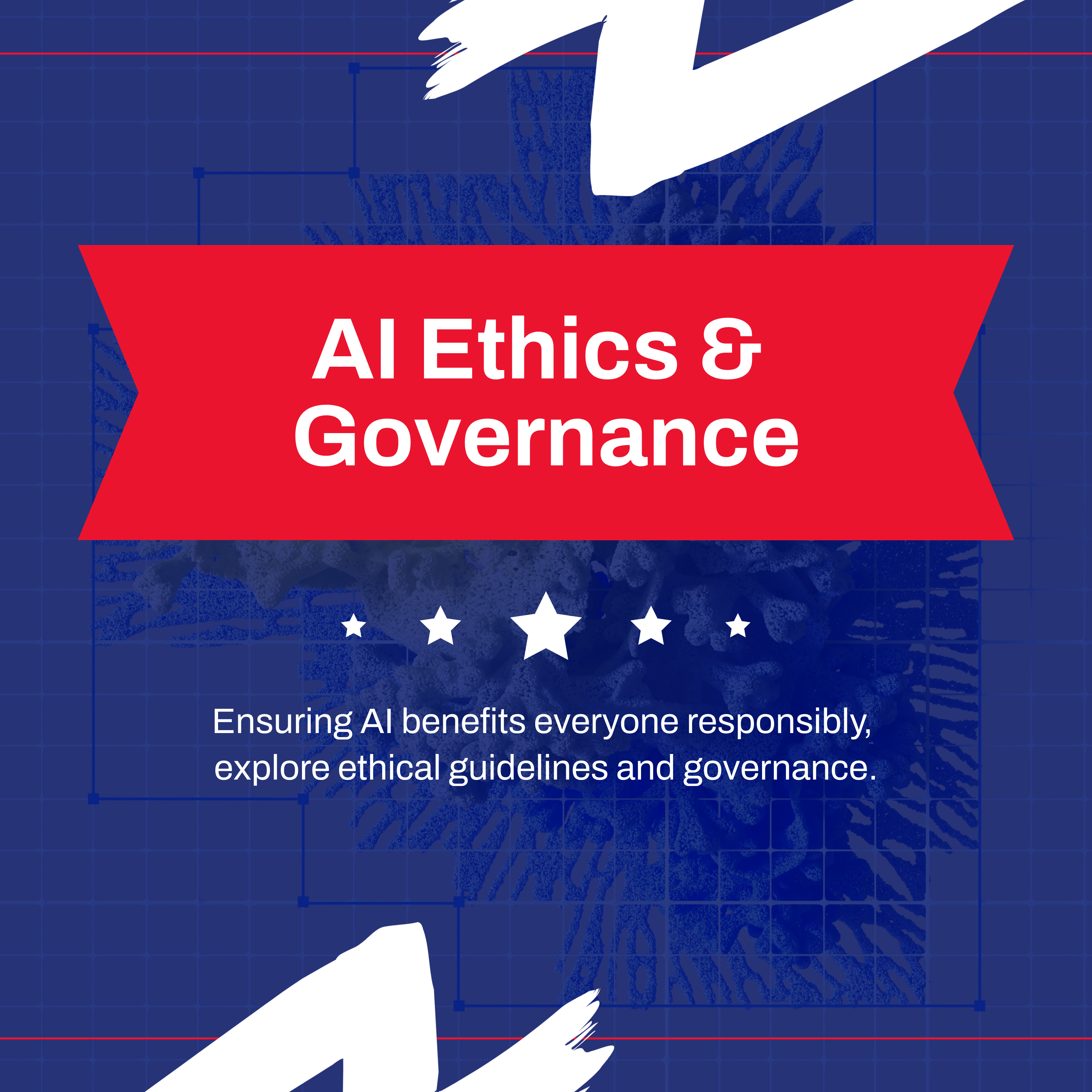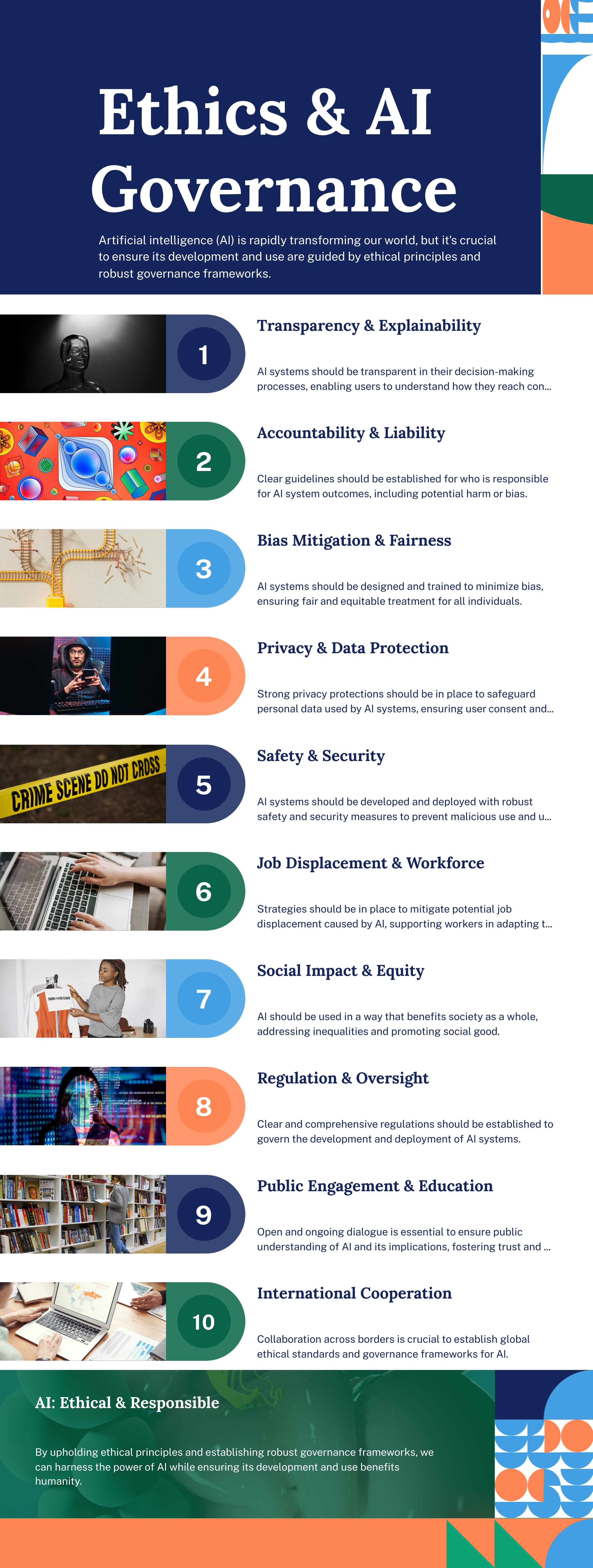Ethics and AI Governance
Ethics & AI Governance: Guiding Principles for Responsible AI Development
Artificial intelligence (AI) is rapidly transforming our world, presenting both opportunities and challenges. To ensure that AI’s development and use are beneficial and ethical, it’s crucial to follow certain guiding principles and establish robust governance frameworks. This infographic outlines ten key areas that are essential for ethical AI governance:
- Transparency & Explainability
- AI systems should be transparent in their decision-making processes, enabling users to understand how they reach conclusions and make decisions.
- Accountability & Liability
- Clear guidelines should be established for who is responsible for AI system outcomes, including potential harm or bias.
- Bias Mitigation & Fairness
- AI systems should be designed and trained to minimize bias, ensuring fair and equitable treatment for all individuals.
- Privacy & Data Protection
- Strong privacy protections should be in place to safeguard personal data used by AI systems, ensuring user consent and control over their data.
- Safety & Security
- AI systems should be developed and deployed with robust safety and security measures to prevent malicious use and unintended harm.
- Job Displacement & Workforce
- Strategies should be in place to mitigate potential job displacement caused by AI, supporting workers in adapting to new roles and opportunities.
- Social Impact & Equity
- AI should be used in a way that benefits society as a whole, addressing inequalities and promoting social good.
- Regulation & Oversight
- Clear and comprehensive regulations should be established to govern the development and deployment of AI systems.
- Public Engagement & Education
- Open and ongoing dialogue is essential to ensure public understanding of AI and its implications, fostering trust and informed decision-making.
- International Cooperation
- Collaboration across borders is crucial to establish global ethical standards and governance frameworks for AI.


